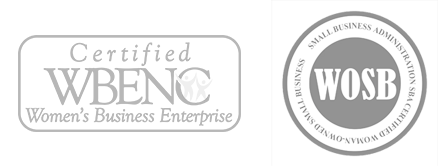THE NEW HIRE FAILURE RATE is astonishing and expensive — and it’s even worse for sales candidates, who can be among the toughest job applicants to properly evaluate. Leadership IQ reports that of 20,000 new hires tracked in a recent study, 46 percent failed within 18 months. Many people blame ineffective interviews, because if you aren’t asking the right questions, you won’t get the insights you need. Barrett Riddleberger, CEO of xPotential Selling, has suggested that there are a handful of quality questions (positioned here as statements) we should all ask our next sales candidate. “Tell me how you defined a qualified buyer in your prior sales role and how, specifically, you arrived at that determination.” Candidates that can’t successfully map this out for you are likely to waste their time chasing low-potential prospects. Strong responses will touch on the profile of ideal targeted buyer including demographics and oftentimes psychographics, budget alignment, and the fact that the ideal customer has needs you can actually meet. “Tell me about one of your most successful sales calls over the past month, including the approach you took, how the conversation flowed, and the outcome.” You’re seeking clarity that the sales rep uses a consultative approach based on high-impact questions that identify the prospect’s needs and make him feel understood. You’re also looking for a sales professional with a clear game plan for each sales call. If your candidate is shooting from the hip in his response, his approach to prospect meetings is likely equally laissez-faire. “Tell me about the last book you read on sales and the two big ideas with which you walked away.” Specifically how and where did you implement them and with what degree of success? This question will reveal a candidate’s attitude about ongoing development and how the candidate might respond to coaching. “Tell me specifically how you found leads to fill your pipeline during your first 90 days in your previous role.”
If you need a hunter who can identify his own leads, then you’re looking for a proactive method that’s sufficient to keep the pipeline full. If the candidate’s response is that he asks for referrals from existing customers, your follow-up questions might include: How many referral conversations do you have a month? How many new sales do you target a month? How many new prospects must you put into your funnel each month to reach that target? Figure out whether the candidate’s sales-funnel assumptions seem realistic. “Think back to your last experience talking with a gatekeeper. Tell me about the language you used with him or her.” If you want a hunter, his response to this question should be well rehearsed, since he probably delivers it several times every day, to the point where it doesn’t sound scripted. “Think about your largest account that you brought in on your own in your prior sales role. Tell me how that first meeting went and why you deemed it successful. Now provide a similar account of a prospect you weren’t able to land. Tell me about that first meeting. What, if anything, would you do differently?” You’re looking for candidates that want to become a trusted advisor and gather enough information to determine next steps, even if that sometimes means walking away. If the candidate is too obsessed with closing every single deal, and winning at all costs, he is not likely for you. But you do want to hear that he progresses the sale, ask for the business where appropriate, and follow up where necessary. In the end, recruiting sales talent is still mostly an art — but with these questions, you can start to understand what really makes each candidate tick.







